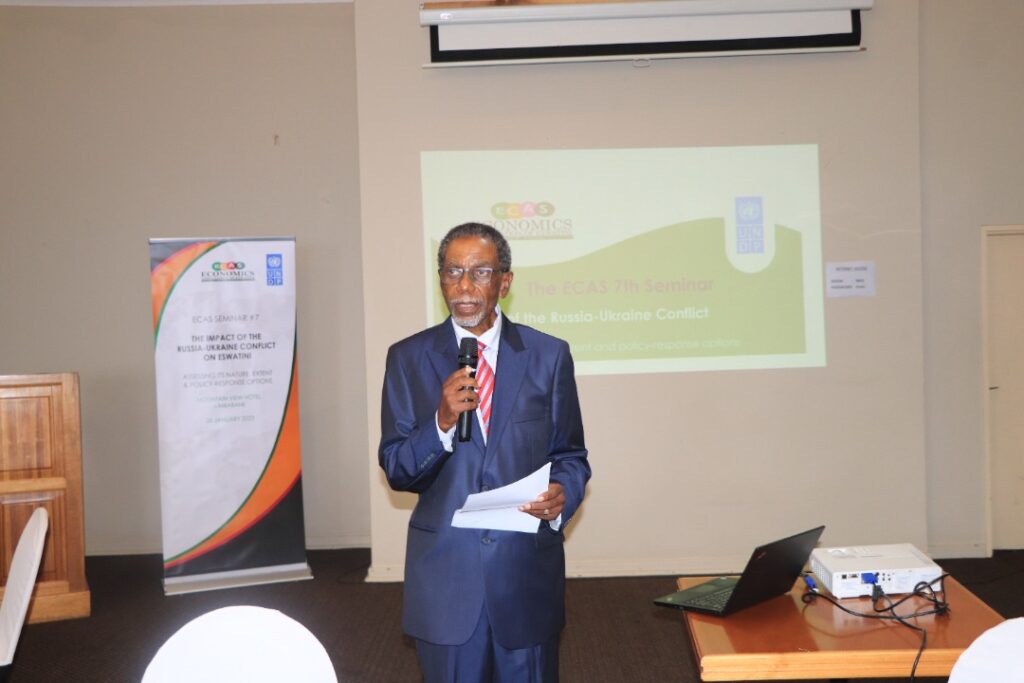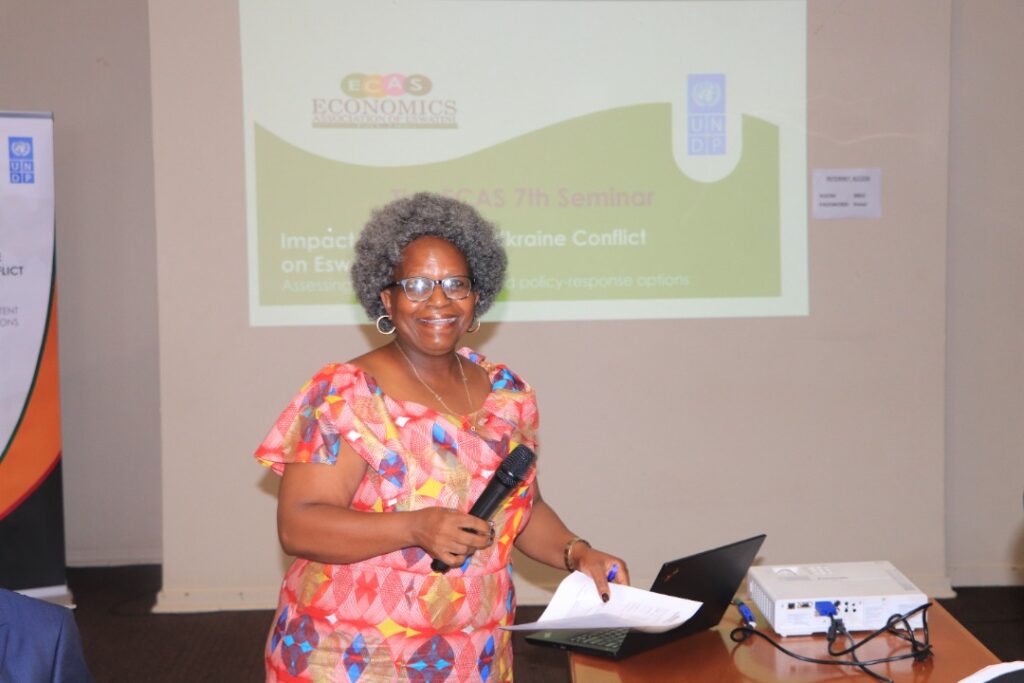
By Avite Mbabazi
The Eswatini Economic Policy Analysis and Research Centre (ESEPARC) says that the current challenge facing Eswatini is creating 300,000 to 400,000 decent jobs.
ESEPARC revealed this during the 7th seminar of the Economics Association of Eswatini (ECAS) which was held to assess the impacts of the Russia-Ukraine conflict on Eswatini.
Senior Research Fellow at ESEPARC Mangaliso Mohammed observed that at the micro level, the country’s economy needed to create a productive economic activity for Emaswati, particularly for the youth. He added that the current challenge facing Eswatini is creating 300, 000 to 400, 000 decent jobs.
On a positive note, Mohammed revealed that the Eswatini economy was relatively resilient in the face of Covid-19, as the dip in economic activity was not as great in the country compared to other economies.
Mohammed did, however, caution that Eswatini has been known to experience delayed reaction to external shocks stating that the full force of the 2008/09 economic crisis was only felt in the years 2011/12 in the country.
Meanwhile, the Chief Economist from the Ministry of Economic Planning and Development Sifiso Mamba disclosed that consumer inflation surged to 5.8% year on year in the second half of 2022 up from a 3.8% average in the first half of the year mainly due to rising food and energy prices. Mamba also revealed that the country’s gross domestic product grew marginally by 0.4% in 2022.

On the other hand, in the agricultural sector, Eswatini’s exposure to the effects of the Russia-Ukraine conflict has resulted in high costs of fertilizers leading to high food prices, particularly for the cost of maize, the country’s staple.
On the question of why Eswatini has not become self-sufficient in maize and still relies on imports, Business Eswatini CEO Nathi Dlamini noted that it is simply because Eswatini cannot achieve economies of scale due to the country’s size and geography.
Additionally, Central Bank of Eswatini (CBE) Economist Dr. Patrick Ndzinisa indicated that since the Russia-Ukraine conflict began, the government has seen the cost of borrowing soar as a result of the high-interest rates leading to an increase in public debt. Coupled with sluggish economic growth, the debt-to-GDP ratio will increase due to high borrowing and low GDP growth.
On the bright side, however, Dr. Patrick Ndzinisa assured Emaswati that we import stable inflation from South Africa given the Rand’s relative stability, so the Lilangeni to the Rand peg continues to serve the country well in times of global crises such as the Russia-Ukraine conflict.

5 thoughts on “Eswatini Needs To Create 400 000 Decent Jobs- ESEPARC”
Comments are closed.